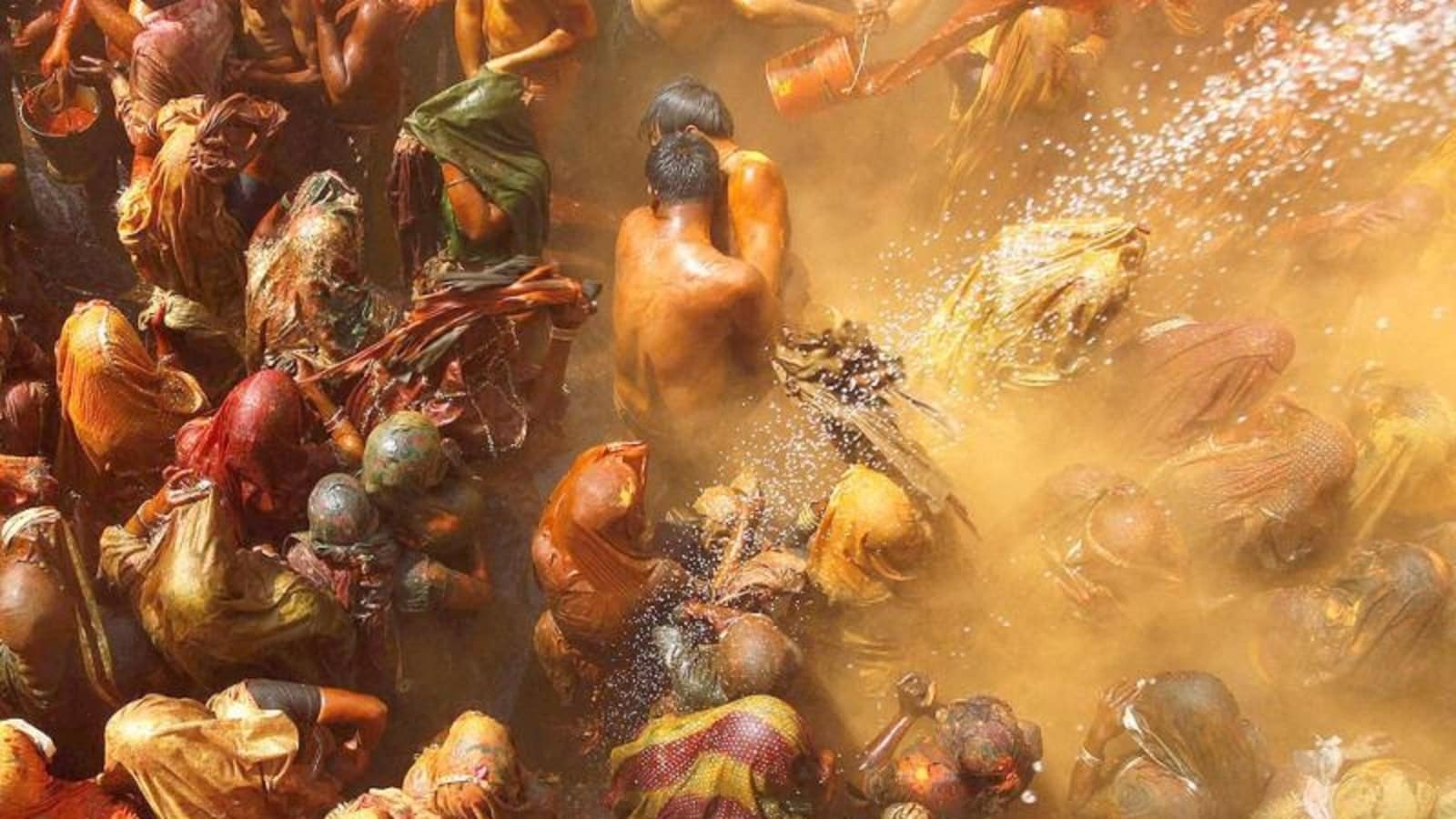
[ad_1]
Holi, the festival of colours will be celebrated with much pomp and enthusiasm across India on Monday, March 25. India is a multicultural nation and each of its many states celebrates Holi according to its own traditions. Braj’s Holi celebrations are known throughout India and the global community. Braj is well-known for its more than ten different Holi festivities. Vrindavan Braj has its own distinctive traditions of celebrating Holi, from the well-known Lathmar Holi in Barsana to Phoolon ki Holi of the Banke Bihari Ji temple.

An annual event in the Baldev villages of Mathura district in Uttar Pradesh is the famous Dauji Ka Huranga festival. It is celebrated after the Holi festival. Men and women play Holi together. Huriyare refers to men and Huriyarin to women. Scroll down to know more about this unique tradition. (Also read: Holika Dahan 2024 date and time: Shubh muhurat, rituals, puja samagri list and all you want to know )
Huranga Holi 2024 Date
The Dauji Temple in Baldev village, Mathura, Uttar Pradesh, will celebrate Dauji ka Huranga on Tuesday, March 26, 2024, with great splendour and pomp. To play this Huranga, devotees and visitors travel from all across the nation and even outside. Huranga often starts in the Dauji temple at 12:00 PM.
Huranga Holi 2024 History
The family village of Mathura called Baldev after Lord Baldev, also known as Dau ji Maharaj, the elder brother of Shri Krishna, is where Dauji’s Huranga is performed. The term “Dau ji” in the local dialect means an elder brother. Sheshnag, one of the two mounts of Lord Vishnu, took the form of Lord Baldev. It is said that Lord Baldev takes the position of Lord Krishna in Maharas or Mahalila during this Holi. Huranga is a more aggressive version of Holi that is said to be performed exclusively by Lord Baldev Ji. Huranga is only allowed in the temple by the descendants of Goswami Kalyan Deo ji. The descendants of Kalyan Deo ji have established a practice of performing Huranga annually after being granted the rights.
During Akbar’s reign, Gokul Nath ji, the Acharya of the Ballabha Kul sect, installed the idol of the god at the site. Every year, hundreds of pilgrims arrive by bus to play and observe the Holi festivities after Dhulandi or Badi Holi. For Lord Krishna’s elder brother, Balrama ji, Holi is the most important festival. The Bhagavata Purana describes how Balrama once went back to Braj alone, without Krishna, and performed ras-lila for the gopis. Every year, two days after Chaitra Masa’s Purnima, the temple celebrates Dauji ka Huranga to honour this past and remember the deity Balrama.
Significance of Huranga Holi
Huranga is a more aggressive form of playing Holi. It is said that Krishna took Radha and Gopis to Barsana and Vrindavan to play Holi. One day Balrama (dauji) decided to play Holi by himself and create mischief (huranga, huddanga). That is why the people of Braj celebrate Holi every year. To play this huranga, devotees and visitors travel from all over the country and even outside. The Huranga often begins at the Dauji temple at 12 noon. The temple now tells the story of Baldev Ji in its entirety.
The cowherds call Balrama to play Huranga first. The cowherds call Balrama to play Huranga first. They arrive at the top of the temple. The Gopas start throwing Gulal-Abir at the Huriyarins, who tear the Gopas’ clothes. They use the Gopas’ clothes to make whips (kode) and beat the naked people with them. People celebrate Huranga’s vibrations by throwing Abur-Gulal at each other. The inhabitants of the panda community sing freely about the greatness of Huranga.
[ad_2]
Source link








